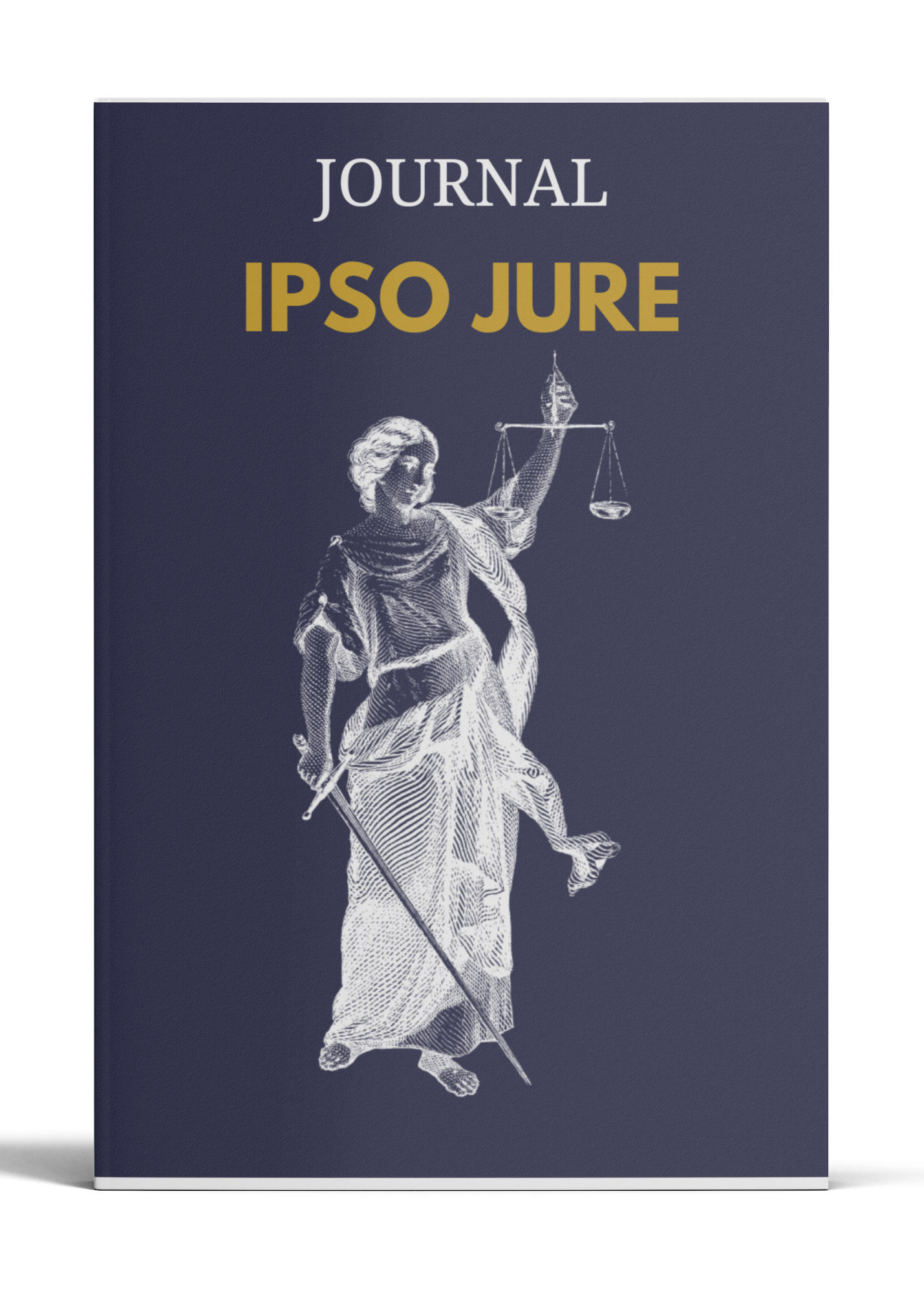The Element Of Bad Faith In The Cancellation Of The Mark "Pentakosta"(Study of Decision Number 1/Pdt.Sus.HKI/Merek/2021/ PN.Niaga.JktPst)
DOI:
https://doi.org/10.62872/j00jdb83Keywords:
Trademark Cancellation, Bad Faith, Judges' Legal ConsiderationsAbstract
The application for trademark registration must be made by the applicant in good faith, which is regulated in Law Number 20 Year 2016 on Trademarks and Geographical Indications. This thesis research aims to find out and analyze the Court Decision related to the cancellation of the "PENTAKOSTA" trademark which has an element of bad faith and how the basis of the judge's consideration in deciding the case of cancellation of the "PENTAKOSTA" trademark. The type of research used in this study is normative legal research. By using the approach of legislation and case approach. From the results of this study it can be concluded that the relationship between the cancellation of registered trademarks with good faith is on the application for registration of the trademark and the Panel of Judges who decided to cancel the trademark after reviewing the bad faith. In the study of Decision Number 1/Pdt.Sus.HKI/ Merek/2021/PN.Niaga.JktPst is not appropriate in applying the law of evidence which is that there is no finding of bad faith in the registration of the trademark by the Defendant. In addition, the legal consequences of the cancellation of the trademark "PENTAKOSTA" is the end of legal protection provided by the state.
Downloads
References
Ahmad Yakub Sukro, “Perlindungan Hukum Terhadap Merek Dagang Terkenal atas Tindakan Passing Off Pada Praktek Persaingan Usaha” Syiar Hukum Jurnal Ilmu Hukum, Vol 16 No 1 (2018): 107
Andre Asmara, dkk, “Studi Kasus Penerapan Prinsip Pendaftaran First to File Pada Pembatalan Merek Cap Mawar (Putusan MARI Nomor: 512 K/Pdt.Sus-HKI/2016)”, Syiah Kuala Law Journal, Vol. 3 No. 2, (2019): 184-201.
Arfi Dyah Chatarina, “Perlindungan Pemilik Merek Pertama Pada Sistem Konstitutif”, Jurnal Hukum dan Dinamika Masyarakat, Vol 16 No 2, (2019): 123.
Dachran Busthami, “Kekuasaan Kehakiman Dalam Perspektif Negara Hukum Di Indonesia”, Jurnal Masalah-masalah hukum, Vol 46 No 4, (2017): 341
Delila Prita Cantika, “Pembatalan Hak Merek Yang Telah Dijadikan Jaminan Fidusia”, Jurnal Yuridis, Vol 5 No 1, (2018): 15.
Dheya Rahmawati, “Article 21 Number (2) Letters (a) Law Number 20 of 2016 About Mark and Geographic Indication In Decision Number 01/Pdt.Sus-Trademark/2019/PN.Niaga.JktPst”, Soedirman Law Review, Vol 2 No 2, (2020): 249-256.
Kadek Bela Rusmawati Hanaya dan Gede Made Swardhana, “Akibat Hukum Pembatalan Merek Yang Telah Terdaftar Oleh Pemegang Merek Menurut Undang-Undang No 15 Tahun 2001 tentang Merek” Jurnal Kertha Semaya, Vol 03 No 03 (2015): 04.
Muhaimin. 2020. Metode Penelitian Hukum, Nusa Tenggara Barat: Mataram University Press.
Ok. Saidin. 2015. Aspek Hukum Hak Kekayaan Intelektual (Intellectual Property Rights). Jakarta: PT. Raja Grafindo Persada.
Peter Mahmud Marzuki. 2005. Penelitian Hukum. Jakarta: Kencana Prenada Media Group.
Rahmadia Maudy Putri Karina, Rinitami Njatrijani, “Perlindungan Hukum Bagi Pemegang Hak Merek Dagang IKEA atas Penghapusan Merek Dagang”, Jurnal Pembangunan Hukum Indonesia, Vol 1 No 2, (2019): 195
S. Sembiring. 2006. Prosedur dan Tata Cara Memperoleh KI di Bidang Hak Cipta, Paten dan Merek. Bandung: Yrama Widya.
Subekti. 1996. Pokok-pokok Hukum Perdata. Jakarta: Cetak XXVIII PT.Intermasa.
Published
Issue
Section
License
Copyright (c) 2024 Fitri Arianti (Author)

This work is licensed under a Creative Commons Attribution-ShareAlike 4.0 International License.












